Elon Musk’s business ties deserve more scrutiny
Across industries, executive after executive has chosen the PRC over free speech
Dozens of different controversies are swirling around Elon Musk at any given time, most of them related to people being angry and/or thrilled by the idea of a rich businessman vocalizing right-of-center political opinions.
What has gotten lost in this discourse is a more boring — but, I think, more significant — concern about his possible takeover of Twitter. This is because Musk, like most global manufacturing executives these days, has extensive business dealings with China. And while there’s nothing wrong with that per se, it means Musk has to watch what he says regarding the PRC, not just in his personal capacity as a business executive but potentially in his institutional role as well. And he’s not alone; Apple TV+, for example, has a rule that none of its content can portray China negatively.
That’s an unfortunate but straightforward consequence of Apple TV+ being so small compared to Apple’s core business of making and selling smartphones: they compromise the content business for the sake of the manufacturing business. The good news for the world is that Apple TV+ is a very small share of western cultural output. They’re doing well with niche content (I love “For All Mankind”), and they won an Oscar for “Coda.” But it’s a small service in the scheme of things.
The problem for the world is that Twitter would be the Apple TV+ of Elon Musk’s enterprises, much smaller and less important than Tesla, so its interests will always be sacrificed to advance Tesla’s interests. And Tesla, like Apple’s hardware business, is deeply enmeshed in China. But Twitter is much more important to global politics and culture than Apple TV+. That’s the whole reason the Musk/Twitter saga has been such a subject of fascination. Twitter is one of a handful of other influential media properties — The New York Times, the three cable networks, AM talk radio stations — that exert a cultural and political influence that far exceeds their modest financial footprints. Apple executives are much less polarizing and controversial than Musk. But pretty much everyone on both the left and right knows they’re a bit squirrelly about China for business reasons. And if they bought the New York Times, that would have dire implications for the integrity of their China coverage.
Musk is mercurial and I won’t pretend to be able to predict what he will do. But I think his business relationships with China and tendency to take pro-PRC positions in his public statements raise some disturbing questions about the future of Twitter that deserve much more scrutiny relative to the concern that he won’t be strict enough in policing hate speech.
China leans very effectively on western businesses
We don’t know exactly why Apple adopted its “no China” content policy, but we can come up with a pretty clear guess based on a handful of high-profile blowups. Back in 2018, for example, Mercedes Benz posted a Dalai Lama quote in English that had nothing to do with China.
The Chinese government flipped out, and Mercedes officially apologized, even though they obviously didn’t do anything wrong.
What was Mercedes so worried about? Well, we know that when Daryl Morey tweeted in English something supportive of protestors in Hong Kong, the PRC didn’t hesitate to wreck the Houston Rockets’ access to the Chinese television market. Other NBA players — including some of the league’s most outspoken and socially conscious stars — sided with China over Morey.
When celebrities do this stuff, it often attracts criticism from Republican China hawks.


Because conservatives agree with Musk about the importance of making social media a welcoming place for transphobic jokes, they haven’t been nearly as quick to condemn him telling the Financial Times that Taiwan ought to become a Beijing-ruled Special Administrative Region. But when it comes to a random celebrity like John Cena, conservatives understand the basic dynamic perfectly well — money talks.
But this applies to corporate entities like Apple and Mercedes-Benz even more than it does to individuals like Cena. An individual always has the option of voluntarily earning less money in order to take a principled stand on human rights. If Apple executives started “doing the right thing” in a way that seriously impaired the company’s stock price, they’d be vulnerable to activist investor campaigns and potentially even litigation.
This strikes me as a fairly profound policy problem. Part of the promise of the old bipartisan consensus in favor of trade with China was that economic integration would help spur the export of American speech norms. Not only has that not worked out, but the practical consequences have been the opposite. I’m sure that if you asked Intel executives whether it’s good that China is perpetrating a genocide and using forced labor in Xinjiang, the vast majority of them would say, in private, that it’s actually bad. But in practice, Intel has apologized for past statements about Xinjiang. Because for all the virtues of capitalism and the for-profit business corporation, it also has at its core an amorality that can produce really bad results when it interfaces with a large despotic regime.
Elon Musk does a ton of business in China
The global electronics industry is famously exposed to the China market. But as we saw with Mercedes Benz, China is a really big deal for automakers as well. Tesla is setting sales records in China, which is obviously only possible because the Chinese government lets Tesla sell cars there.
Like many global manufacturing companies, Tesla also builds things in China — including what Musk projects will be the company’s largest factory in the world.
There’s nothing particularly untoward or suspect about this. Many more people live in East Asia than live in North America, so it’s natural that over the long term any manufacturer of large objects is going to want to have their biggest production facilities in Asia.
But Tesla has received unusually generous treatment from the Chinese government. Part of China’s strategy for industrializing has been to say to foreign companies operating in key sectors that if they want to be in the China market, they need to operate as a joint venture with a Chinese-owned firm. It’s become pretty clear that this is a mechanism for Chinese companies to learn foreign technology and business methods, and ultimately pull Chinese-owned companies up the value chain. Foreign companies don’t like it, but in most cases the lure of the China market is just too good to resist. Telsa, though, managed to become the first automaker to receive an exemption from the joint venture requirement.
That’s a huge coup for Musk and a testament both to the quality of Tesla’s products and also to Musk’s shrewdness and skill as a businessman. But without being a hater, I have to say that “shrewdness and skill at making Xi Jinping like you and want to give you favorable treatment” is a mixed ethical bag. The New York Times is blocked in China as part of their censorship regime. So is Substack. It would be better for their businesses if A.G. Sulzberger and Chris Best were as skilled as Musk at getting Xi to do special favors for their companies. But achieving that goal would require them to fundamentally compromise the integrity of editorial businesses in a way that I think would outweigh the benefits. More fundamentally, as a non-corporate person, I would be thrilled to have Chinese readers but also profoundly embarrassed if this site managed to become popular in China without getting censored. That would suggest I’m doing a really bad job of standing up for core values that Americans on the left and right broadly agree on.
Elon Musk’s stated views are very pro-PRC
Ten years ago, Tesla was a very small company that Mitt Romney denounced as the kind of “loser” that was dependent on unwise subsidies from the Obama administration. At the time, liberals were generally enthusiastic about the idea of an electric vehicle startup. And to the extent that Musk had any known political views, he seemed like a pretty mainstream Democrat.
He also had very normal geopolitical opinions like “foreign dictatorships are bad” that a person who doesn’t have extensive Chinese business interests is free to express on Twitter (which, of course, is banned in China).

But as Musk’s business grew, he became more China-friendly in his public statements. Initially this took the relatively sensible form adopted by many who need to come up with something nice to say about the PRC: praise for their extensive infrastructure buildout. This is something I’ve done myself — it’s incredibly impressive that China built mid-sized metro systems in a couple of dozen cities over the course of time that it took the United States to build three miles of subway on the Upper East Side.
But in more recent years, Musk’s thinking on China has evolved in less defensible directions. We know, for example, that part of his rightward political evolution over the past several years was driven by the restrictiveness of California’s Covid-19 protocols. Yet apart from a token March 2020 gesture of praise for Xi’s success in controlling the virus, he’s had absolutely nothing to say about China’s Covid Zero policies that have been much more draconian than anything offered in the United States.
The same is true, though obviously in a much broader sense, of Musk’s emergence as a champion of free speech who is skeptical of heavy-handed content moderation policies by big tech platforms. Reasonable people can disagree as to exactly where Twitter and Facebook should draw these lines, and I tend to agree with Musk about some of the specifics here. But obviously the speech restrictions on Twitter and Facebook are much less onerous than the ones the PRC imposes on their domestic internet. That’s part of the reason Twitter and Facebook are banned in China! But Musk has never said or done anything to champion free speech in China. That’s not surprising — nobody with business interests in China criticizes the PRC’s speech repression. But it is a reminder that Musk, like many business people, prioritizes being in the good graces of the dictators who run China over maintaining his commitment to free speech.
And, again, Musk’s silence on free speech in China isn’t because he doesn’t talk about China. He does talk about China — including publicly advocating for a PRC takeover of Taiwan just one day before Tesla buyers were made eligible for an important PRC tax break.
What does this mean for Twitter?
Does this mean that a Musk-run Twitter is going to impose China-friendly censorship as heavy-handed as the self-censorship Musk practices in his personal commentary? That he’s going to turn it into a China-free zone the way that Apple has with its content business?
Probably not.
I really don’t know what Musk’s business ties to China mean for Twitter. And I wish that more of the reporting and commentary on this takeover proposal focused on this. After all, here are some things that we know:
-
China is very willing to threaten western companies over their China-related speech practices.
-
China takes a very expansive view of what speech should be prohibited by people who want to do business in China, including speech via English-language communications on platforms that are banned in China.
-
Western business enterprises — including car companies — have been willing to do what the PRC asks, even in ridiculous cases like apologizing for an innocuous Dalai Lama quote.
-
Tesla has both sought and received favorable treatment from the Chinese government and views China as a crucial market for both sales and production — one whose importance is likely to grow in the future.
-
Musk has, in his personal communication, stopped criticizing the PRC on any topic, including on matters like free speech and Covid protocols where he’s been vocal about U.S. policies, and he has instead praised the PRC government and endorsed its views on geopolitical conflicts.
So what follows from this? I don’t know, in part because Musk is mercurial and hard to predict. But also in part because it’s not clear exactly how Chinese censorship exporting works. I assume nobody had to explicitly tell Musk that criticizing Covid Zero would be bad for business — it’s just something he knows, so he doesn’t do it. By the same token, I doubt there was ever an explicit conversation between Tim Cook and someone from the Chinese government about Apple TV+ programming. Apple just knows the score.
Media brands with integrity, including Substack and the New York Times and Twitter, just proceed and accept the censorship hit. Industrial brands like Mercedes stifle speech for the sake of sales. When an industrial brand is also a media brand, like Apple, the industrial brand makes the media brand do what’s good for business. So what does Twitter do once it’s owned by the CEO of a major industrial brand? I don’t know, but I wish the reporters on the Musk beat would ask. And frankly, I wish Congress and the FTC would, too.
Subscribe to Slow Boring
Passion and Perspective from Matthew Yglesias




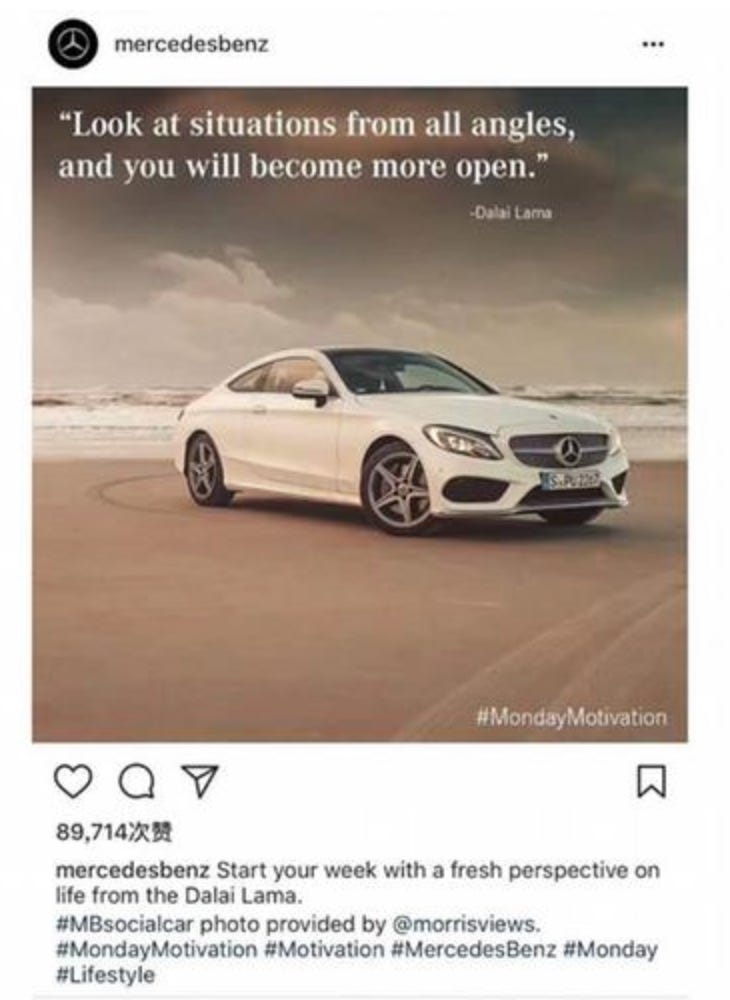

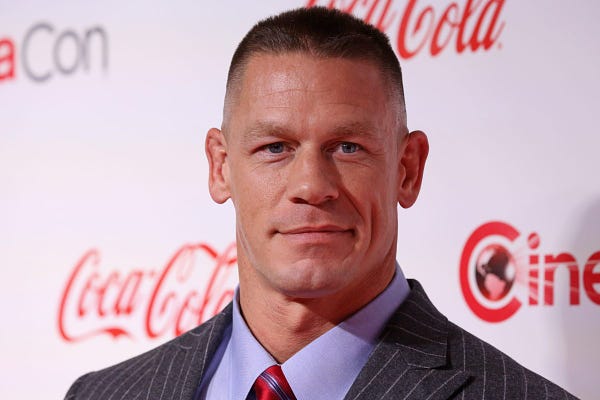

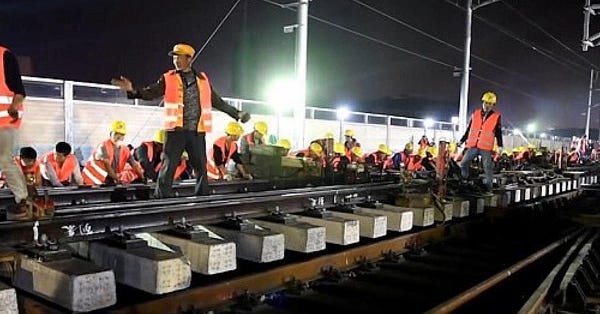
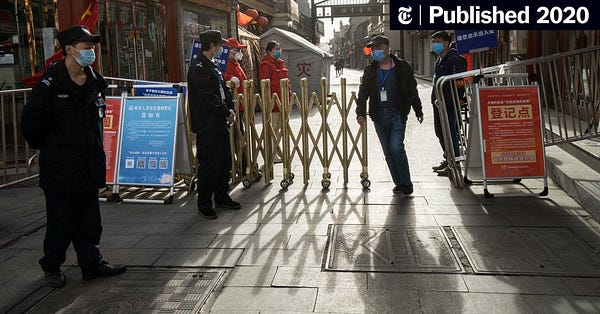







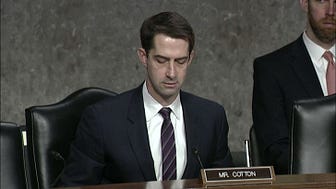

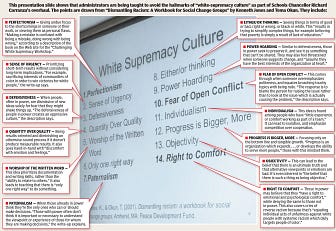

>>>Because conservatives agree with Musk about the importance of making social media a welcoming place for transphobic jokes, they haven’t been nearly as quick to condemn him telling the Financial Times that Taiwan ought to become a Beijing-ruled Special Administrative Region. But when it comes to a random celebrity like John Cena, conservatives understand the basic dynamic perfectly well — money talks.<<<
Matt's being too polite here. Republicans are deeply unserious and/or profoundly duplicitous about China policy. Pretty much everything the GOP does on China is intended for domestic political audiences only. Strengthening America to compete in the new Cold War would mean things like:
*Addressing US demographic decline via immigration (Republicans want to do just the opposite, and push our growth levels down to PRC levels).
*Competing for the world's best and brightest to strengthen America's STEM sector (Republicans want to do just the opposite, and make it harder for talented foreigners to get work permits, green cards or student visas).
*Leading on Pacific Rim economic integration (Republicans have become the more protectionist of our two parties, and gave Obama essentially zero support on TPP, despite the obvious boost joining this group would have given to US efforts to contest the PRC's growing influence in this critical region).
*Bolstering US democratic norms (something cold warriors in the 1950s and 1960s understood: a nontrivial degree of support for the Civil Rights movement was generated by the need to compete for global hearts and minds, and to demonstrate the superiority of liberal democracy over totalitarianism). Republicans won't even disavow insurrectionists.
*Readying the country for its next, inevitable rendez-vous with a pandemic. (Republicans have mostly gone full anti-vax nutter).
I could also cite climate change, infrastructure and various other areas where the US should play a leading role and/or demonstrate robust state capacity. The PRC is a formidable adversary: surely a lot tougher opponent that the USSR ever was. Republicans aren't serious about any of it, though admittedly they do a bang up job hurling racist invective (Kung Flu, etc) on Twitter, so at least there's that!
Matt overrates the cultural importance of Twitter. It has a tenth as many users as FB. The vast majority of users get a really shitty experience: tweeting is about as likely to engage others as sitting alone and screaming at your TV. Twitter has become a forum for elites to spar with each other in public view and that’s not nothing, but it isn’t so different from dueling press releases or cable news appearances, and it could all be transferred to FB pretty easily. Bottom line, Twitter is much less integrated into normal peoples’ lives than FB or Instagram and there isn’t an obvious path for it to broadly engage normal people.